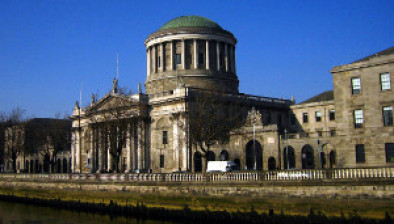High Court: FBD liable to pay publicans for partial closure of premises

Killian Flood BL
The High Court has delivered a further judgment in the landmark FBD case involving publicans claiming insurance cover for losses arising from the pandemic.

About this case:
- Citation:[2021] IEHC 279
- Judgment:
- Court:High Court
- Judge:Mr Justice Denis McDonald
In this second case, the court outlined that cover would be available for partial closures of the pubs’ premises due to the pandemic, rather than just a complete closure. Potentially, this could increase the overall amount of business interruption compensation that will be paid out by FBD.
Further, the court provided important obiter comments regarding the appropriate counterfactual to be applied in the legal test for causation. This was an issue that had been left over from the principal decision. Finally, the court also ruled that the plaintiffs were entitled to the costs of the proceedings but rejected an application by the plaintiffs for costs to be awarded on a “legal practitioner-and-client” basis.
The three issues that arose in the case were: 1) the interpretation and scope of the word “closure” in the policy; 2) the territorial dimensions of the relevant counterfactual in the test for causation and; 3) the plaintiff’s application for costs to be awarded on a legal practitioner-and-client basis.
Readers are referred to ILN’s case report here for a summary of the facts and findings in the principal judgment.
Interpretation of the word “closure”
The issue relating to the definition of “closure” was only raised in the principal hearing at a late stage by the plaintiffs and appeared to be influenced by the UK Supreme Court’s decision in The Financial Conduct Authority v. Arch Insurance (UK) Limited & Ors. [2021] UKSC 1. The plaintiffs argued that business interruption cover for the closure of their premises was triggered when any part of their premises was affected by an “imposed closure”.
The plaintiffs submitted that, when read as a whole, the policy clearly envisaged that cover would be provided even when a business was not fully closed due to an insured risk. The plaintiffs also relied on the FCA decision, which held that a policy clause that covered an “inability to use” a premises was “naturally read as including a discrete part of those premises”.
FBD advocated for a more limited interpretation of “closure”, arguing inter alia that a reasonable person would consider closure to mean a complete closure of a premises. Counsel for FBD submitted that it was “wholly implausible” that the plaintiff pubs were closed when they were providing takeaway or outdoor dining. In essence, FBD claimed that the plaintiffs were attempting to equate the word “closure” with a change in trading conditions.
Delivering the decision in the case, Mr Justice Denis McDonald said that it would be wrong to reduce the meaning of “closure” to its dictionary definition and must be considered in the context of the policy as a whole. Having so ruled, the court considered that “closure” extended to the closure of part of the plaintiffs’ premises. Several reasons were provided including that other extensions of cover (such as for vermin) did not require a complete shutdown of the premises, that a wide range of premises in terms of size and function were insured under the policy and that the quantification of losses in the policy clearly envisaged some levels of trade during the indemnity period. This last point “strongly suggests that the policy envisages that a complete closure of the insured premises is not a precondition to cover”.
However, the court also rejected the plaintiffs’ submission that the cover was for the shutdown of the business rather than the physical premises. The court held that, while there may be a significant overlap between the closure of a premises and the carrying on of business, the policy did not protect loss of business per se.
The court then considered a number of different factual scenarios regarding closure. It was held that a pub was subject to closure if it was only allowed to operate a takeaway service. The court also considered that a premises was closed if seated patrons could only be served outside. Mr Justice McDonald ruled that a reasonable person would consider a premises closed in both situations.
The court stated that it was more complicated if indoor service was allowed on a restricted basis because it would be difficult to draw the line between a mere restriction on a premises and the closure of the premises. However, the court opined that if a discrete area of a pub was closed to patrons, then that area would be closed for the purposes of the policy. This position was “less clear cut” if the closure of an area could not be identified, such as with reduced capacity.
The court was not convinced by the plaintiffs’ submission that an “inability to use” a premises was the same as the “closure” of a premises. However, the court noted that a further hearing on quantum would have to take place and therefore decided to leave over the conclusive determination of these issues until evidence had been tendered by the parties relating to the exact scope of the closures in the case.
The appropriate counterfactual
In relation to the appropriate counterfactual to apply to the case, the court outlined the issue from the principal judgment. In the first case, the court said that the counterfactual required the court to consider what would have been the situation for the plaintiffs if the outbreaks of Covid-19 had not occurred. The court had requested further submissions from the parties as to whether the proper counterfactual had Covid-19 in the world, but not the State, or whether Covid-19 did not exist in the world at all.
Ultimately, the court held that the policy provided cover for infectious disease without any exclusion of global pandemics “which by their very nature are liable to cross borders”. As such, the court said it was difficult to confine the counterfactual to the territory of the State. This was particularly so given the international nature of the world prior to the pandemic.
Further, when considering the “trends and circumstances” provision of the policy, it was noted that stripping out Covid-19 from only Ireland (rather than the entire world) would result the court guessing what might have occurred in that world. For example, would there be a windfall to Ireland from the tourist market, or would travel restrictions be imposed to prevent outbreaks in the State? As such, there was “significant force” in the plaintiffs’ submission that this approach would involve “such impractical complexity and artificiality that it cannot form part of a reasonable interpretation of the FBD policy”.
As such, the court provisionally decided that the proper counterfactual removed the Covid-19 disease from the world entirely. The court cited the FCA decision with approval in this respect. However, the court stressed that these comments were not binding due to the fact that the evidence on quantum had not been heard.
Costs
Finally, the court dealt with the issue of costs. It was accepted by FBD that the plaintiffs were each entitled to party-and-party costs. However, the plaintiffs applied for the higher threshold of legal practitioner-and-client costs. The plaintiffs claimed that FBD had derived significant benefit from the present proceedings being heard as a test case and relied on the English decision in Excelsior Commercial & Industrial Holdings Ltd v. Salisbury [2002] C.P. Rep. 67 to say that this could result in legal practitioner-and-client costs. Specifically, it was said that the saving in time and costs for FBD from the plaintiffs’ litigation could allow the higher level of costs to apply, per Excelsior.
Mr Justice McDonald considered both Excelsior and the Irish decision in Trafalgar Developments Ltd v. Mazepin [2020] IEHC 13, and refused the plaintiffs’ application. The court noted that there was no Irish authority for the proposition that legal practitioner-and-client costs should be awarded in test cases. This was so despite many test cases coming before the courts.
Further, it was held that the Legal Costs Adjudicator had a wide discretion to allow certain items of work in the case, because the Adjudicator was entitled to have regard to the entire case and its context. In circumstances where the nature of the test case can be factored into the adjudication of costs on a party-and-party basis, the court refused to grant the application for legal practitioner-and-client costs.
Conclusion
The court emphasised throughout its judgment that its comments in relation to the interpretation of “closures” and the counterfactual were obiter. This was because the evidence of the quantum hearing had not yet been heard. However, the court’s judgment clearly outlines that, in principle, the closure of part of a premises is covered by the FBD policy. Further, the appropriate counterfactual for the test of causation is to remove Covid-19 from the world as if it never existed.
Finally, the court awarded costs on a party-and-party basis in favour of the plaintiffs. The matter was to be relisted to determine the precise form of the order in the case.










